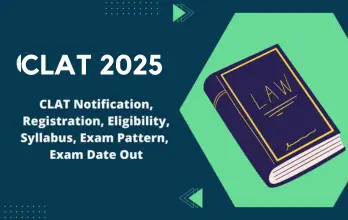
Throughout this blog, we will embark on a journey to explore effective methods for improving your logical and legal reasoning abilities, specifically tailored for the CLAT exam. Step by step, we will delve into each aspect, unraveling the intricacies of logical reasoning and legal reasoning. Moreover, we will introduce innovative and novel strategies, designed to elevate your preparation and boost your performance in these sections. After all, achieving a commendable score in logical and legal reasoning can make all the difference in securing a coveted spot in your desired law school.
Let us delve into this masterfully crafted blog, filled with invaluable insights and practical advice that will empower you to approach the logical and legal reasoning sections of CLAT 2026 with confidence and prowess.
Understanding the Importance of Logical and Legal Reasoning in CLAT 2026:
These skills are not only essential in the academic realm but also prove to be invaluable in their future legal profession, making Legal reasoning an indispensable skill for any aspiring lawyer. The Legal reasoning section in the CLAT exam acts as a litmus test, meticulously assessing candidates' prowess in these critical areas, thereby aiding in the selection of the most competent legal minds.
Similarly, the Logical reasoning section scrutinizes candidates on a wide array of parameters, delving into their critical thinking, logical reasoning, and analytical abilities. Moreover, this section also tests their aptitude for critical reasoning and problem-solving, all through the lens of logical reasoning. Aspirants must exhibit astute cognitive skills and logical prowess to conquer this segment, making it a formidable but rewarding challenge.
Considering their significance, it is noteworthy that the Logical reasoning section carries a substantial weightage of 20% in the CLAT exam, while the Legal reasoning section holds an even more impressive weightage of 20-25%. The combined impact of these two sections cannot be understated, as they collectively contribute to approximately 40-45% of the CLAT exam. This underscores the paramount importance of acquiring a strong command over both these sections.
A solid grasp of Logical and Legal reasoning endows candidates with an unparalleled advantage, potentially catapulting them to a high rank in the fiercely competitive CLAT exam. Investing time and effort in honing logical and legal reasoning skills is a strategic move for aspiring law students preparing for CLAT 2026. The rewards of excelling in these sections are manifold, as they not only pave the way for acing the exam but also lay the foundation for a promising and successful career in the field of law.
CLAT Preparation Videos 2026 | Legal Reasoning
Key Components of Logical Reasoning: Breaking Down the Types of Questions
Delving into the past year's papers on CLAT and focusing on the trends emerging in the Logical Reasoning sections, one can discern a pattern that unfolds intriguingly. The section typically presents candidates with 5-6 passages, each ranging from 300 to 500 words in length, and subsequently, 4-5 questions are based on each passage. Here, candidates are required to answer these questions while contextualizing the information provided in the passages, thereby putting their critical and analytical thinking prowess to the test.
The questions formulated in the Logical Reasoning section are skillfully designed to evaluate candidates' problem-solving abilities and critically analyzing skills. Moreover, the section demands a strong reading and comprehension aptitude, as the passages, questions, and sometimes even the options themselves can be lengthy and intricate to comprehend. To mitigate the pressure during the exam, inculcating the habit of daily reading will prove invaluable, as it refines one's reading speed and enhances comprehension abilities.
One can effectively master this section by engaging in a wide range of practice questions and diligently working on improving their reading and comprehension skills. Devoting ample time and effort to this section will surely yield fruitful results, as it has the potential to fetch you commendable marks in the CLAT exam. Thus, dedicating sufficient time and unwavering focus to this segment can serve as a game-changer in your quest for success.
But, at the same time, aspiring candidates need to be mindful of their preparation approach and avoid squandering valuable time on learning and practicing outdated topics of Logical Reasoning, such as analogy, classification, and blood relations. These topics are no longer relevant to the CLAT reasoning section, and investing time in such an obsolete syllabus could prove counterproductive. Instead, wisely channel your efforts towards mastering the concepts of critical reasoning, as this will undoubtedly set you ahead of many other aspirants, bolstering your performance in the exam.
Mastering Legal Reasoning: Analyzing Past CLAT Legal Reasoning Questions:
Embarking on this journey of conquering the legal reasoning section, the past year's CLAT legal reasoning papers stand as invaluable guiding tools, offering profound insights into the mind of the examiners and shedding light on the path that leads to a fruitful outcome. By meticulously analyzing these past papers, aspirants gain a valuable understanding of the examiners' thought process and discern which topics bear the utmost importance, as they frequently appear in the questions. Armed with this knowledge, one can chart a well-informed course and direct their efforts towards areas that carry greater significance.
It is essential to recognize that the Legal Reasoning section carries a substantial weightage of approximately 20-25% in the CLAT exam, underscoring its vital role in determining the overall score and rank. Among the myriad of legal topics, certain areas demand particular attention and diligent preparation. Traits laws, constitutional laws, contract law, family and property law, international laws, intellectual property rights law, criminal law, and environmental laws are among the core subjects that aspirants simply cannot afford to neglect. These topics have historically featured prominently in the CLAT exam, signifying their significance and necessitating comprehensive preparation.
Aspiring to become the sharpest legal mind in the country, it is equally crucial to remain abreast of all recent national and international legal developments. Gaining an in-depth understanding of these matters and placing special emphasis on legal terminology will prove critical, as proficiency in these areas is essential to comprehending any legal matter. As law students of the future, it is incumbent upon candidates to possess a profound grasp of the field they aspire to excel.
Remember, The Legal Reasoning section is a transformative opportunity for aspirants to shine and showcase their legal acumen. By dedicating themselves to thorough preparation, leveraging the insights from past year papers, and staying updated with current legal developments, candidates can confidently navigate the challenges of this section and significantly boost their scores in the CLAT 2026 exam. Embrace the journey of mastering legal reasoning, for it holds the potential to propel you toward success and pave the way for a rewarding and illustrious career in the realm of law.
Developing Critical Thinking Skills for Effective Logical Reasoning:
It is no wonder, then, that examiners in the CLAT (Common Law Admission Test) place great emphasis on evaluating candidates' critical thinking skills. Numerous questions are specially designed to gauge your ability to think critically, making it imperative for you to cultivate and excel in this fundamental skill to succeed in the logical reasoning section of the CLAT.
So, how do you go about developing this invaluable skill? The journey to honing your critical thinking prowess starts with engaging in daily exercises that stimulate your mind, much like how solving puzzles and engaging in brain games challenge your cognitive faculties. These activities prompt your brain to think creatively, analyze problems from different angles, and arrive at well-reasoned solutions.
Equally crucial is the habit of being an avid reader. By exposing yourself to a wide range of thoughts, perspectives, and topics, you open up the horizons of your mind. The diverse knowledge you acquire from reading enriches your understanding and allows you to see issues from multiple viewpoints, ultimately fostering the development of your critical thinking.
Additionally, engaging in meaningful discussions with individuals who hold different opinions from yours is a powerful technique to enhance critical thinking. By embracing diverse perspectives, your mind learns to think flexibly, explore various vantage points, and gain deeper insights into complex matters. These interactions nurture your ability to analyze situations objectively and make well-informed judgments.
As you progress in your critical thinking journey, learn to skillfully analyze arguments. Identify the core premises that underpin an argument and discern the conclusions drawn from them. This process involves evaluating the logical structure of the arguments, as well as recognizing potential fallacies or weaknesses therein.
Remember, developing critical thinking skills is a gradual and iterative process. As you consistently engage in these practices over time, you will notice a significant improvement in your ability to think critically. This skill will not only serve you well during the CLAT exam but will also become an invaluable asset throughout your lifetime, empowering you to approach challenges and make decisions with clarity, reason, and confidence.
Effective Strategies for Tackling Legal Reasoning Questions in CLAT 2026:
This section, encompassing a myriad of thought-provoking scenarios, demands an astute mind capable of analyzing complex legal principles and applying them to the given context. As aspiring legal minds brace themselves for this intellectually stimulating challenge, the quest for efficiency becomes paramount. Fear not, for within the realm of this discourse lie an array of invaluable tips and tricks, meticulously curated to elevate your prowess and empower you to navigate the legal reasoning labyrinth with unparalleled confidence and dexterity.
So, here are the tips and tricks for tackling the legal reasoning section in a concise, pointer format:
• Develop a deep understanding of legal principles.
• Read the given passage carefully and pay attention to the smallest details.
• Eliminate incorrect or extreme answers to narrow down choices.
• Be vigilant about tricky wording in the questions.
• Analyze previous year's papers on the legal reasoning section
• Improve your time management skills to allocate sufficient time to each question.
• Review and learn from your mistakes during practice sessions.
• Stay calm and confident while attempting the questions, trusting in your preparation.
By implementing these strategies while attempting legal reasoning questions in the CLAT exam, you can significantly improve your performance and approach this section with unwavering confidence. Ultimately, this will lead to achieving a commendable score, reflecting your proficiency in the domain of legal reasoning.
Enhancing Analytical Abilities: A Crucial Aspect of Logical and Legal Reasoning:
Within the confines of this examination, aspiring candidates are bound to encounter a myriad of questions that demand the utmost application of analytical thinking. The ability to dissect, evaluate, and systematically synthesize information becomes a decisive factor in acing this competitive test. Consequently, the mastery of analytical skills emerges as an instrumental goal to strive for.
Yet, the sphere of analytical competence extends far beyond the CLAT exam, permeating various facets of life, especially within the professional realm. Whether one ventures into the legal field or any other profession, the demand for analytical prowess remains omnipresent. In the legal arena, particularly, the skill to scrutinize cases and navigate through intricate situations becomes an essential attribute for success. Equally significant is the ability to interpret logical arguments and discern legal information accurately, tasks that will continually put one's analytical understanding to the test.
Indeed, the value of enhancing analytical abilities extends beyond the realm of formal education and examinations. In the tapestry of life's challenges and opportunities, those who possess sharpened analytical skills will always enjoy a distinct advantage. From solving everyday problems to making informed decisions with far-reaching consequences, analytical thinking emerges as a potent tool.
In the pursuit of excellence, both in the context of the CLAT exam and beyond, one must embark on a journey of continual improvement. Nurturing analytical abilities is not a mere optional endeavor; rather, it is an imperative quest for personal growth and success. Whether confronting the rigors of an examination or navigating through the complexities of life, a keen analytical mind will serve as a trusted compass, guiding one toward clarity and insight.
Tips and Techniques to Improve Speed and Accuracy in CLAT Logical Reasoning
As you embark on your journey to conquer the CLAT logical reasoning section, bear in mind that swift and accurate reasoning is your ultimate aim. To achieve this, honing your understanding of the subject matter is of paramount importance. Ensure that you command a thorough grasp of the concepts of each topic and acquaint yourself with the various question types that could arise from them. The more familiar you are with the different aspects of logical reasoning, the better equipped you will be to tackle the challenges that lie ahead.
To excel in the CLAT logical reasoning section, it is essential to focus on certain key aspects that can significantly enhance your performance. Let's see some tips & techniques to ace this section:
- Clear Your Concepts: First and foremost, ensure that you possess a solid command over the concepts related to each topic. Familiarize yourself with the different types of questions that may arise from each topic. This will provide you with a strong foundation to tackle the logical reasoning section with confidence and clarity.
- Practice Daily: Regular practice holds the utmost importance in mastering the logical reasoning section of the CLAT exam. Engage in a diverse range of questions on each topic to gain a clearer understanding of the subject matter. Consistent practice will hone your skills and improve your problem-solving abilities.
- Time Management: Managing time effectively is crucial in the logical reasoning section, given the amount of reading involved. Failure to do so may result in falling behind during the exam. To combat this, incorporate timed practice sessions using a timer. This practice will aid you in better time management and help reduce the time taken to solve each question.
- Avoid Assumptions: It is essential to base your answers solely on the information provided in the question. Avoid making assumptions or jumping to conclusions not supported by the given data. Relying solely on the provided information will lead to more accurate responses.
- Utilize the Elimination Technique: The elimination technique can be a valuable strategy to improve accuracy. By systematically eliminating incorrect or extreme answer choices, you increase your chances of arriving at the correct solution, even when unsure about a question.
- Stay Calm & Confident: During the exam, you may encounter questions of varying difficulty levels. It is crucial not to panic in such situations. Maintain a calm and composed demeanor, and focus on tackling the questions one at a time. Trust in your preparation and abilities.
- Embrace Mock Tests: Before the actual exam, make ample use of mock tests. These practice tests serve multiple purposes: they boost your confidence, allow you to fine-tune your strategies, and most importantly, help you manage time effectively during the exam.
By adhering to these guidelines and incorporating them into your preparation routine, you can significantly improve your speed and accuracy in the CLAT logical reasoning section.
Leveraging Online Resources and Study Materials for Comprehensive Preparation:
Numerous successful students have emphasized the importance of leveraging online study materials to bolster their preparation with high-quality content. Online resources offer the advantage of being regularly updated and tailored specifically to the requirements of the CLAT exam. However, exercising discernment in selecting reputable and credible sources is crucial. Rely only on those sources that have earned trust and recognition for their accuracy and relevance.
In the vast realm of online resources, you can adopt various approaches to maximize your preparation. For instance, to excel in the current affairs section, Smartkeeda's "LawEx Current Affairs Magazine" proves to be a valuable asset. This bi-monthly publication comprehensively covers all relevant and significant news in a format closely aligned with the CLAT exam. Additionally, Smartkeeda offers a daily Current Affairs PDF and sets of two paragraphs, each followed by five questions - mirroring the CLAT exam pattern - providing you with an excellent platform for practice.
If you aim to strengthen your conceptual understanding, you can explore free resources and lectures available on the YouTube channel of LawEx, specially tailored to cater to the needs of CLAT aspirants. These resources are a treasure trove of valuable insights and knowledge, enabling you to make the most of these freely accessible materials.
The CLAT exam places considerable emphasis on reading and comprehension skills. To sharpen these essential abilities, you can engage in daily reading of reputable newspapers like "The Hindu." This practice not only enhances your comprehension skills but also grants you a wider perspective on the latest developments in various domains. For a more comprehensive understanding of business and economy-related topics, referring to sources like "Business Standard" or "Live Mint" proves to be highly beneficial.
As an aspiring law professional, it is imperative to possess a firm command of legal terminology. Leveraging online resources can provide you with a clear and thorough understanding of these crucial elements, further strengthening your preparation.
By harnessing the vast expanse of online resources and study materials, you position yourself as a proactive participant in your own success story. Remaining one step ahead of your competition, you are diligently and intelligently working towards your goal. With unwavering dedication and a smart approach to preparation, you are poised to conquer the CLAT exam and pave the way for a promising future in the field of law.
So, By implementing all these strategies and utilizing the best quality study material, you can hone your skills and excel in the logical and legal reasoning section of the CLAT exam. We sincerely hope that you have found this detailed blog to be helpful, and it has set you on the right path towards a victorious outcome.
Furthermore, we extend our gratitude to you for dedicating your time to read this blog until the end. If you believe that we may have unintentionally overlooked something, we value your feedback, as it matters to us.
Wishing you the best of luck for the upcoming CLAT 2026.

Author : Saurabh
Greetings! I'm Saurabh, an aspiring writer fueled by a deep passion for self-discovery through the written word. Along my journey, I have stumbled upon the enchanting realm of blog writing, which has become my true calling. As an avid wordsmith, nothing brings me greater joy than imparting knowledge and assisting students in their preparation for competitive exams. I invite you to join me on this thrilling expedition as we venture into the vast ocean of possibilities that writing offers. Stay connected to receive invaluable insights and expert guidance in every blog post. Together, let's unlock our full potential and embark on this educational adventure that awaits us!
FAQ’s
The Logical and legal reasoning section bears immense significance in the CLAT exam, accounting for approximately 40-45% of the paper. Its evaluation of a candidate's logical thinking and legal comprehension is pivotal for fostering a successful legal career. As a result, enhancing one's performance in this section becomes paramount to achieving a top rank in the CLAT exam.
Understand the syllabus and question types, watch video lectures for clarity, analyze past papers, and practice with mock tests to prepare for the CLAT logical and legal reasoning section.
Engaging in diverse reading and participating in discussions with individuals holding different opinions can foster a broadened perspective in your thinking. Cultivating a daily habit of engaging in activities that challenge your mind, such as solving puzzles, playing mind games, and nurturing critical and analytical thinking abilities, will contribute significantly to enhancing your logical reasoning skills. This systematic approach enables gradual improvement and refinement of your logical reasoning prowess.
Indeed, having prior legal knowledge is not a prerequisite for excelling in legal reasoning. However, if you do possess such knowledge, it naturally grants you an advantageous position over other aspirants.
It is advisable to make a comprehensive record of the frequently asked questions in the exam, identifying the topics and their placement within the syllabus. Analyzing this data is crucial. Additionally, pay close attention to the recurrent question types and attempt to discern patterns within them. Seeking guidance from your mentor during lectures can assist you in developing the skill of pattern recognition while analyzing past year papers.
Cultivate a daily reading habit that encompasses a diverse range of topics. This practice not only facilitates an improvement in reading speed but also enhances comprehension skills. Consequently, such enhancements will significantly aid you in effectively tackling the legal reasoning section.
Avoiding reference from past year papers, neglecting mentor advice, failing to engage in daily and diverse reading, avoiding challenging sections, and not dedicating sufficient time are common mistakes made by students in the logical and legal reasoning section of the CLAT exam. On the other hand, By following these tips, you can steer clear of these pitfalls and enhance your performance in the examination





